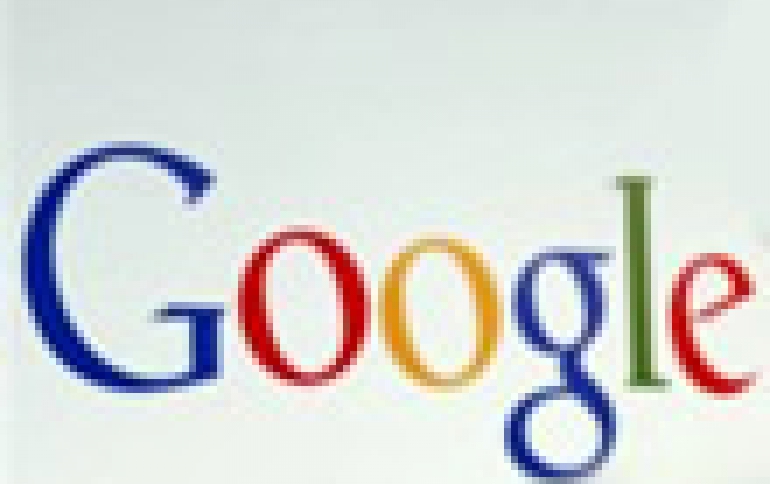
EU Close To End Google Anti-trust Probe
The European Commission announced that it has obtained an improved commitments proposal from Google in the context of the ongoing antitrust investigation on online search and search advertising.
In its proposal, Google has now accepted to guarantee that whenever it promotes its own specialised search services on its web page (e.g. for products, hotels, restaurants, etc.), the services of three rivals, selected through an objective method, will also be displayed in a way that is clearly visible to users and comparable to the way in which Google displays its own services. This principle will apply not only for existing specialised search services, but also to changes in the presentation of those services and for future services.
Commission Vice President in charge of competition policy, Joaquin Almunia, said: "My mission is to protect competition to the benefit of consumers, not competitors. I believe that the new proposal obtained from Google after long and difficult talks can now address the Commission's concerns. Without preventing Google from improving its own services, it provides users with real choice between competing services presented in a comparable way; it is then up to them to choose the best alternative. This way, both Google and its rivals will be able and encouraged to innovate and improve their offerings. Turning this proposal into a legally binding obligation for Google would ensure that competitive conditions are both restored quickly and maintained over the next years."
Google had already made concessions regarding the other concerns raised by the Commission:
- Google will give content providers an extensive opt-out from the use of their content in Google's specialised search services if they so wish, without being penalised by Google.
- Google will remove exclusivity requirements in its agreements with publishers for the provision of search advertisements; and
- Google will remove restrictions on the ability for search advertising campaigns to be run on competing search advertising platforms.
The European Commission added that Google's compliance with these commitments would be supervised by an independent monitoring trustee. The commitments would cover the European Economic Area (EEA) for 5 years.
The EC will in the coming period inform the complainants in this case of the reasons why it believes Google's offer is capable of addressing its concerns. The complainants will then have the opportunity to make their views known to the Commission before the final decision.
Google had previously escaped sanctions in the United States last year, where the search giant received only a mild reprimand from the Federal Trade Commission.
Despite the imminent deal, Google may still face a second EU probe, this time into its Android operating system for smartphones, with potentially bigger risks for the company. The Commission is continuing its investigation on this matter.
The FairSearch group, whose members include Microsoft and Finnish Nokia, has accused Google of using Android to divert traffic to its search engine. The Commission has yet to decide whether to open an investigation.
Commission Vice President in charge of competition policy, Joaquin Almunia, said: "My mission is to protect competition to the benefit of consumers, not competitors. I believe that the new proposal obtained from Google after long and difficult talks can now address the Commission's concerns. Without preventing Google from improving its own services, it provides users with real choice between competing services presented in a comparable way; it is then up to them to choose the best alternative. This way, both Google and its rivals will be able and encouraged to innovate and improve their offerings. Turning this proposal into a legally binding obligation for Google would ensure that competitive conditions are both restored quickly and maintained over the next years."
Google had already made concessions regarding the other concerns raised by the Commission:
- Google will give content providers an extensive opt-out from the use of their content in Google's specialised search services if they so wish, without being penalised by Google.
- Google will remove exclusivity requirements in its agreements with publishers for the provision of search advertisements; and
- Google will remove restrictions on the ability for search advertising campaigns to be run on competing search advertising platforms.
The European Commission added that Google's compliance with these commitments would be supervised by an independent monitoring trustee. The commitments would cover the European Economic Area (EEA) for 5 years.
The EC will in the coming period inform the complainants in this case of the reasons why it believes Google's offer is capable of addressing its concerns. The complainants will then have the opportunity to make their views known to the Commission before the final decision.
Google had previously escaped sanctions in the United States last year, where the search giant received only a mild reprimand from the Federal Trade Commission.
Despite the imminent deal, Google may still face a second EU probe, this time into its Android operating system for smartphones, with potentially bigger risks for the company. The Commission is continuing its investigation on this matter.
The FairSearch group, whose members include Microsoft and Finnish Nokia, has accused Google of using Android to divert traffic to its search engine. The Commission has yet to decide whether to open an investigation.




















